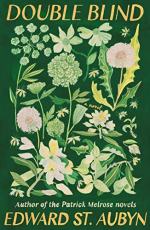|
This section contains 1,395 words (approx. 4 pages at 400 words per page) |

|
The passenger pigeon, once the most numerous bird in North America and perhaps the world—with one flock, observed as late as 1866, a mile wide and three-hundred miles long, with three and a half billion birds in it—was extinct by 1914, without the assistance of an asteroid or an Ice Age.
-- Francis
(chapter 1)
Importance: At the novel’s start, Francis considers the impact of human activity on the natural world. In a striking example, he discusses the vast flocks of passenger pigeons that once populated North America. The loss of these gargantuan groups nicely gestures towards the motivating forces behind Francis’ ecological efforts. Through his wilding activities (which tap into the regenerative abilities of the natural world), Francis seeks to limit the damage that humans inflict upon their environment; he hopes that, through a more responsible relationship with nature, humans can avoid further instances of extinction.
I was totally invested in refuting the...
-- Olivia
(chapter 5)
|
This section contains 1,395 words (approx. 4 pages at 400 words per page) |

|



